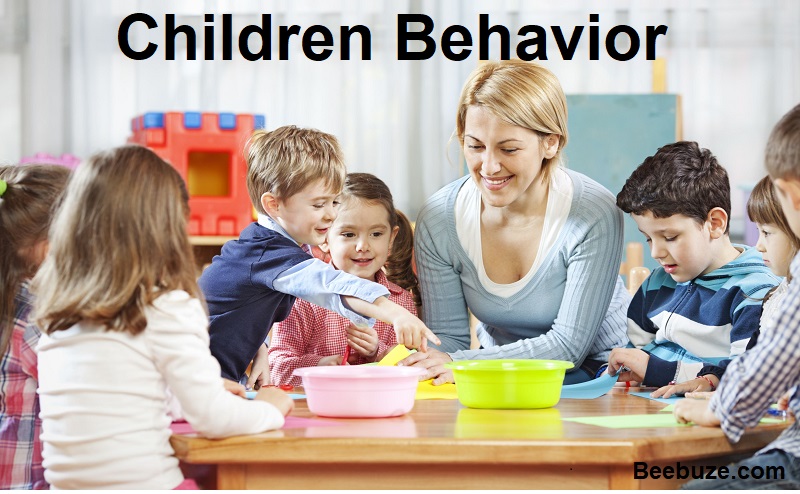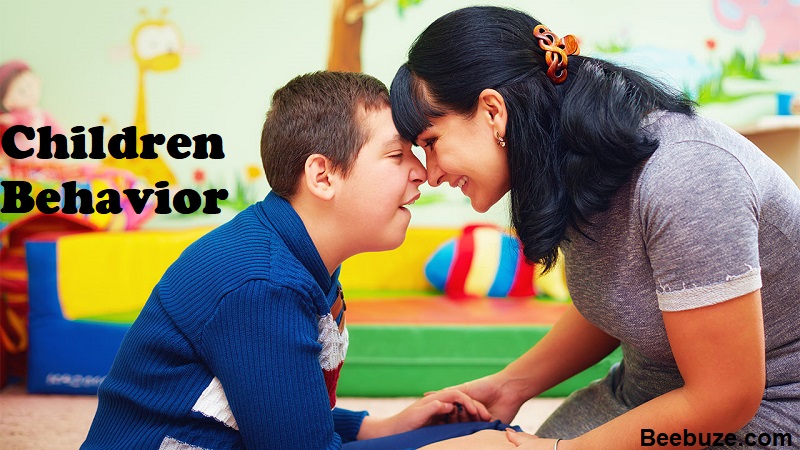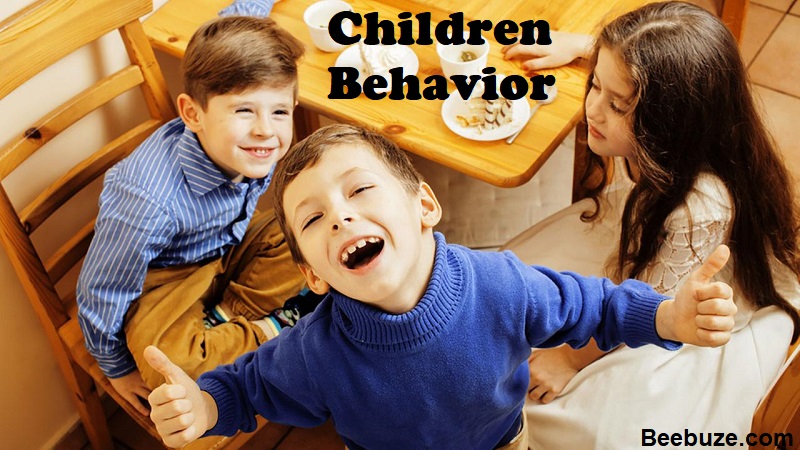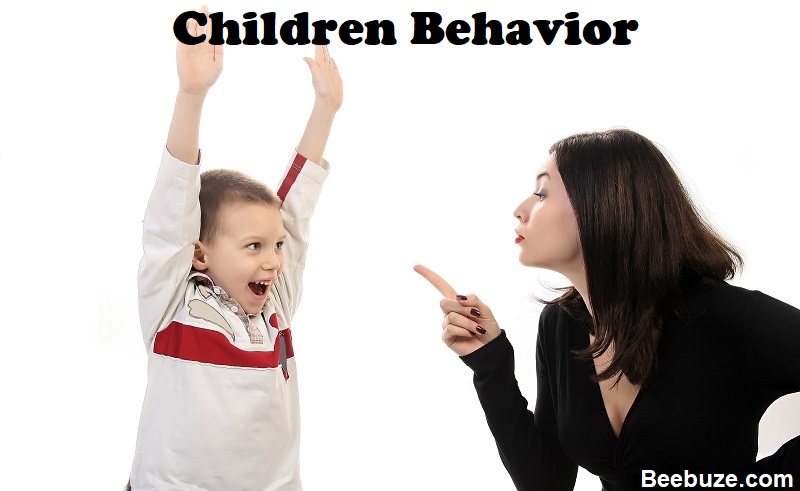How to improve self-esteem in your children behavior
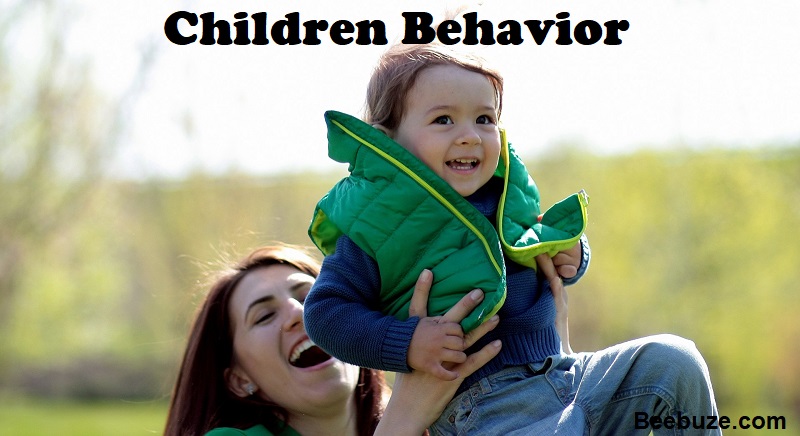
How to improve self-esteem in your children behavior is one of the most important tasks that every parent have. Teaching them how to value, respect and treat each other with affection is the key from the first years of their life. Now, how to do it?
Parents are the most important people for their children. They are those who exert the greatest influence in the complex but beautiful task of knowing themselves, the support to discover the world and to turn back when they feel lost. Parents are those who provide the mirror to their children to recognize themselves. Therefore, it is so important that they begin to cultivate acceptance in them.
How to improve self-esteem in your children behavior?
The need to feel safe
Often, children seek approval from their parents to feel loved and accepted. They need to know that they agree with them, that they give them permission to feel confident. The question is how to improve self-esteem in your children behavior to regulate this need so that little by little they become more autonomous and independent. The problem is when it becomes too intense and lasts over the years because it can create a kind of dependence on the approval of others to act.
Thus, when parents accept their children value as they are and appreciate them, they provide a psychological shield that will protect them for life. But unfortunately, we don’t see that very often. Not all parents are able to meet the emotional needs of their children. However, you can always learn the wonderful art of acceptance, even in adulthood.
On the other hand, we must take into account that children learn from their parents, the children behaviors they express, the words they say and the gestures they represent. Thus, if all this set of answers conduit to love, affection and security, then children will internalize that they are valued with loved and respected. These will be your first lessons of worth and good improvement of self-esteem.
One aspect to be clear is that acceptance does not lead to resignation, that is, sometimes it is necessary to establish limits in the education of the little ones. Yes, the important thing is that we do not stop transmitting the message that they are accepted as they are, recognizing both their values and difficulties.
Things to do for parents
Now, if children are treated from contempt, aggressiveness or indifference, which will feed inside them the hopelessness, the rejection or the feeling of abandonment. In this way, they will learn that they are not loved, but invisible and their self-esteem will be impaired. Therefore, it is important:
- Recognize their potential instead of constantly pointing out their mistakes. This does not mean that we do not do it, but always from a perspective of opportunity to grow.
- Avoid creating expectations about children behaviors and their future.
- Listen to them and be interested in what they want to share with us.
- Recognize and validate your emotions. If we label their feelings as “bad” or have them repressed or denied, the result may be low self-esteem, insincere behavior and a loss of connection with their feelings. Therefore, we must assess the whole range of emotions that they experience, instead of assessing only positive ones.
However, it is important to know how to improve self-esteem in your children behavior. You have to avoid telling them how they should feel, as well as compare them with their peers, using sarcasm, threats, and punishments in response to their feelings. The only thing that we would be promoting would be the denial or concealment of how they feel.
How to help children express their discomfort
Encouraging healthy self-esteem in children also means teaching them how to express their discomfort, their negative emotions in an appropriate way.
Self-esteem implies knowing and valuing ourselves and this we cannot do if we forget when we feel bad or angry. Everything counts in the emotional universe. For this reason, we indicate below a series of keys that will favor the expression of emotions in the children behavior:
- Provide a safe and accepting climate that invites children to express how they feel.
- Help them in the expression of their discomfort. For example, through activities such as writing, drawing, telling a story, interpreting, etc.
- Tell a similar situation where we feel like them, thereby promoting the idea that we understand.
- Be a good role model in coping with intense feelings.
- Help them feel good in situations of disappointment or defeat.
The importance of positive language to your children behavior
We must not forget one of the most powerful elements of parents to strengthen the self-esteem of their children is “the language”. The way we have to address them determines part of the link we build.
In each of the interactions we have with children, we are in some way reflecting our identity. Therefore, it is so important to pay attention to the words and the tone of voice that we use. The fundamental thing is that we use a positive and sincere language that promotes their self-esteem.
This type of language is composed of a description of the children behavior but free of judgments. Do not distinguish their value from their behavior. In addition, we must accompany them as to what our reaction is to what the child has done. That is how we feel and what we think about what happened. And finally, to point out in some way that we recognize and validate how you feel.
Conclusion:
As we see, being a father implies being an instructor and a trainer of skills to live in the world. A parent must have to know how to improve self-esteem in your children behavior. To do this, the use of discipline is necessary. However, this cannot be an assault on self-esteem. Its a means to create a safe environment that facilitates learning and autonomy.

